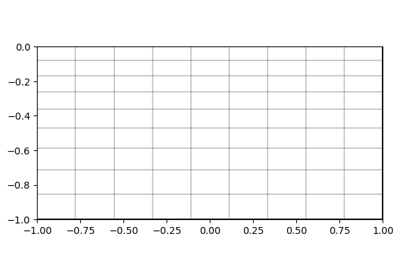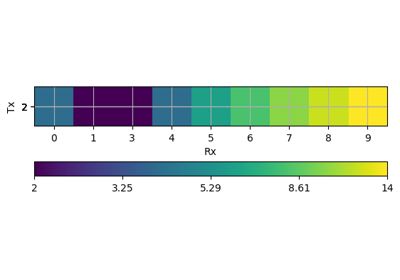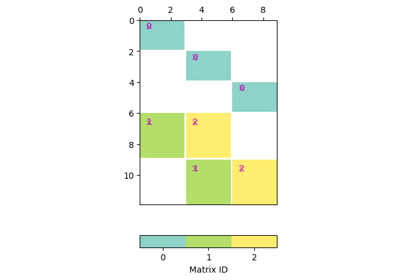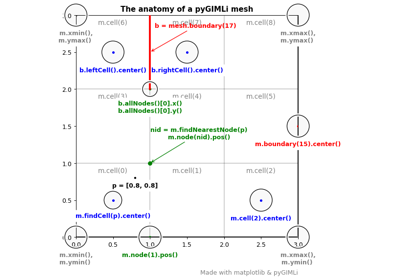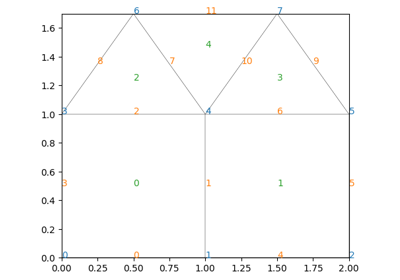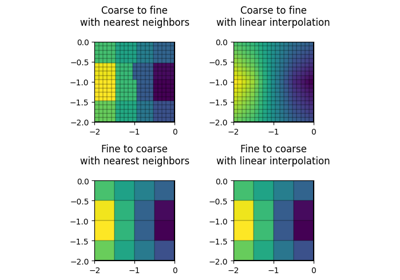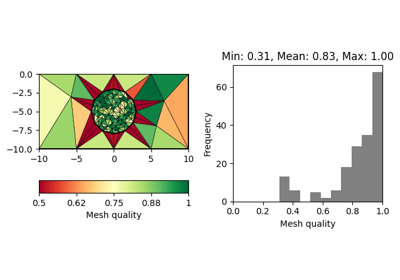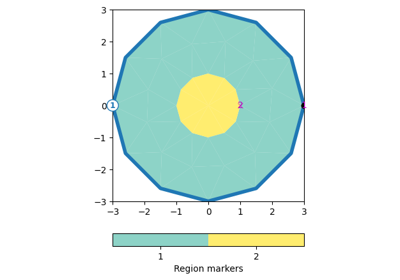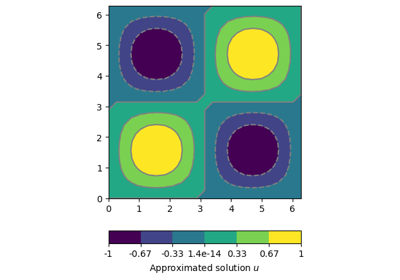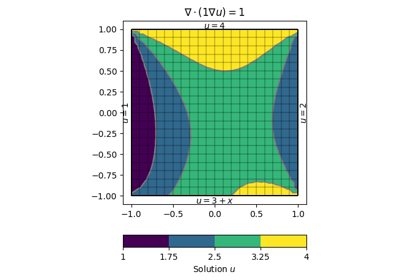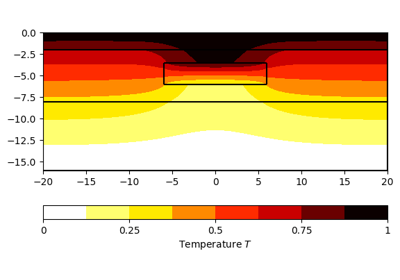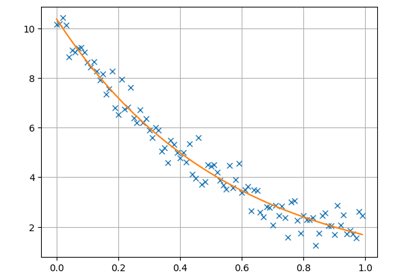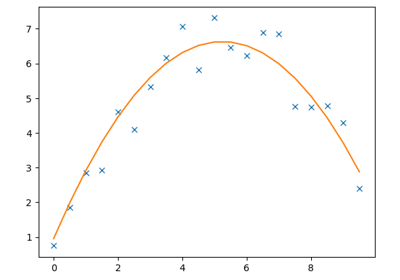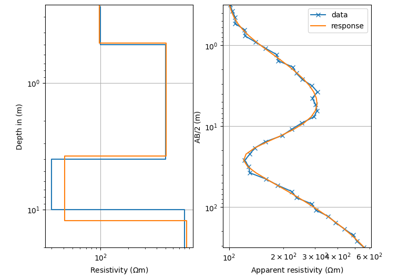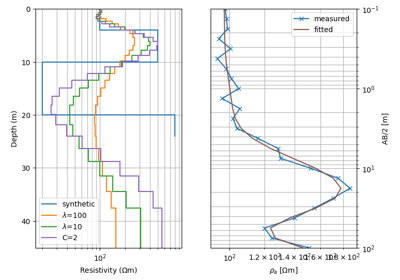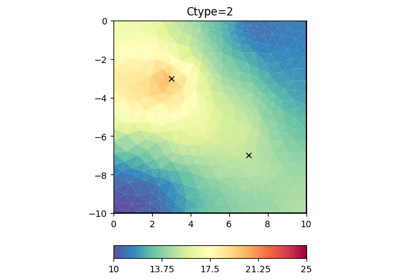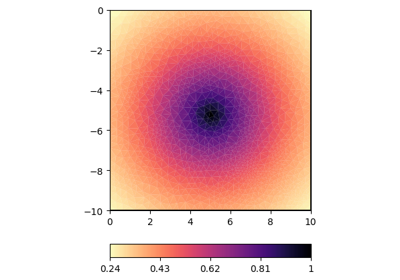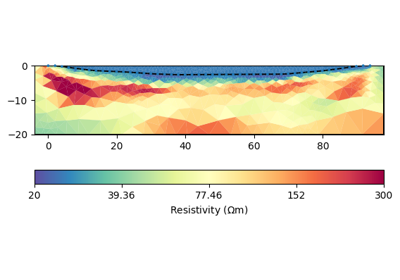Tutorials#
Learn how pyGIMLi can be used for modelling and inversion. The listed tutorials with increasing complexity start with basic functionality such as mesh generation and visualization and dive into the generalized modelling and inversion concepts including managers and frameworks. Check out the Examples for more specialized demonstrations and interesting case studies.
The geoscience software developer group Software underground (SWUNG) hosts yearly Transform meetings. We joined in 2021 and 2022 and provided tutorials (videos on the SWUNG youtube channel) accompagnied by Jupyter notebooks (Transform2021 and Transform2022). Additionally, there has been a pyGIMLi webinar in the SEG webinar series Near-Surface Geophysics - Open-Source Software (YouTube video) covering some newer features (GitHub project)
Basics#
These introductory tutorials cover basic tasks such as meshes, data container, matrices, visualization, and more.
Meshes#
These introductory tutorials cover meshes from simple generation, their elements, visualization, interpolation and more.
Modelling#
Here we collect examples and user stories that illustrate the modelling part of pygimli.
Inversion#
Simple inversions with increasing complexity.
